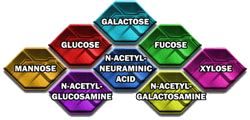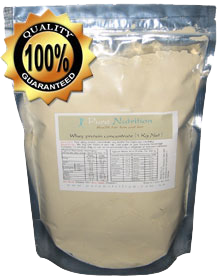

Losing weight is not easy. It’s a lifestyle change but many people are having a hard time changing their lifestyle to lose the extra weight. For a person to lose weight, they would need to exercise or go on a diet plan. Dieting can feel like you are depriving yourself with the indulgence of food while exercise can get boring and some people just don’t have the extra time and effort to do it on a regular basis.
The First thing you must learn is your body type. Then plan a smoothie regiment around your type of metabolism. Next you would add herbs to the smoothies to speed up the process.
Below the smoothie Herbal Diet Mix ingredients, you will find info on your body type
Bundle of Herbs
1-3 month supply of each herb is .20 -.38 oz Total Weight 4.5 oz
4-8 month supply each herb is .75 oz Total weight 1 pound
Each herb is individually sealed and packed separately by the oz
This is a saving of roughly $200-$450 depending on the herbal supplier if you were to buy each herbal powder by the pound.
This is a very affordable way to sample the herbal powders and see if you like them.
Recommendation: When you receive the bundle please personally test each herb individually. Just place a pinch on the tip of your tongue and wait for an allergic reaction if no allergic reaction occurs then you may mix all the herbs together in the foil bag enclosed with your order. Just a teaspoon per day in your daily smoothie is all you need.

Ingredients:
All herbs are in powdered form
Glyconutrients (Kelp) (Aloe Vera) (Shark Cartilage) (Psyllium Husk) (fenugreek) (whey Protein Isolate) ( Shiitake mushroom Powder)
-
• Rhodiola Rosea
• Dandelion
 • Gymnema Sylvestre
• Gymnema Sylvestre• Moringa
• Spirulina
• Gotu-Kola
 • Guarana Seed
• Guarana Seed• Bromelain
• Ginger
• Wheat Grass
• Creatine
• Garcinia
• White Kidney Bean Ext
• Suma
• Cinnamon
• Bee Pollen
• Chickweed
• Alfalfa


Order NOW
Try a 1-3 month supply$29.00 |
Try a 4-8 month Supply$69.00 |

The most trusted source for herbal information is Ayurveda
Ayurveda, a 5,000-year-old healing system, views excess weight, or obesity, as a body out of balance. The goal of Ayurvedic medicine is to achieve perfect health and balance of the mind, body and spirit through proper nutrition, exercise and meditation. Restoring Ayurvedic balance is the means to losing excess weight. The first step is to correct any digestive problems. Then Ayurveda guides you to the appropriate selection of food, drink and herbs to improve metabolic efficiency.
Ayurveda is based on the theory of the three doshas or mind-body types, which have their own set of physical, mental and emotional characteristics. The three doshas are vata (air), pitta (fire) and kapha (earth). All people and things possess elements of each dosha, but one or more of the doshas may be predominant in your body and behavior. For example, you may be a vata-pitta, a pitta-kapha or a vata-kapha. Your unique combination of doshas is your constitution type, or prakruti, which establishes your physical, mental and emotional makeup. One way to achieve balance and ideal weight through Ayurveda is to identify your dosha, then make appropriate adjustments in diet, yoga practice and lifestyle.
To determine which dosha is most dominant in your body, make a check mark over the individual characteristics (listed below) that describe you. The category with the most check marks will indicate your dosha. If you have almost the same number of check marks in two or more categories, your body type is a mixture of two or three doshas. This list of characteristics will give only a rough indication of your dosha. Accurately determining your dosha body type is best conducted by an Ayurvedic physician.
Body Type:Physical characteristics: Thin, light-boned, angular build; slow to gain weight; dry skin and hair; eats and sleeps erratically; chilly hands and feet; low ratio of muscle to fat; fat accumulates below the navel (prone to potbelly on a lean frame). Mental characteristics: Quick mind; restlessness; creates and learns quickly; forgets easily; enthusiastic; imaginative; vivacious. Emotional characteristics: Prone to anxiety, worry, mood swings and nervous disorders. Diet: Benefits from grounding foods, such as grains and oils.
Body Type:Physical characteristics: Medium-sized, athletic build, well-proportioned; blond, red or prematurely gray hair; fair or freckled complexion; warm, ruddy, perspiring skin; good stamina; voracious appetite and tendency to overeat; tends to be warm or hot; sleeps well; eats meals quickly; likely to develop ulcers; gains and loses weight easily; apple shape when overweight. Mental characteristics: Confident, passionate, articulate, courageous, intelligent, ambitious. Emotional characteristics: Demanding, irritable, impatient, short tempered. Diet: Benefits from cooling foods, such as salads and sweet fruits.
Body Type:Physical characteristics: Large, heavy build; wide shoulders; voluptuous or barrel-chested; gains weight easily and has trouble losing it; thick, moist skin and lustrous hair; difficulty with digestion; prone to respiratory illness; excellent stamina; needs more sleep than vata or pitta; eats slowly; pear shape when overweight. Mental characteristics: Forgiving, affectionate, relaxed, slow and graceful, slow to anger, calm, tolerant, reliable. Emotional characteristics: Lethargy, procrastination, depression. Diet: Benefits from heating and invigorating foods, such as cayenne and other hot spices and herbs.
Kapha-Reducing DietBeing overweight commonly indicates an out-of-balance kapha, but can also result from a pitta or vata imbalance. Individuals with a dominant kapha dosha tend to gain weight easily and have trouble losing weight. In many cases, they may be overweight because their metabolisms (digestive fire, or agni) are sluggish.
An Ayurvedic weight-loss program includes yoga practice and reducing kapha-aggravating foods in the diet, including heavy, sweet, sour, salty, oily and greasy foods. Pungent, warming spices and herbs are part of the kapha diet because they light the fires of digestion. The following are the essential components of a kapha-reducing diet.
Eat leafy green vegetables such as spinach, beet greens, dandelion greens and lettuce; radishes; sprouts; and fresh fruits such as apples, pears, cherries and berries.
Avoid all dairy products except skim or low-fat milk.
Limit or eliminate all red meat. Eat skinless white turkey or chicken breast meat instead.
Eat whole grains such as corn and barley, basmati rice, beans and legumes such as garbanzo beans and red lentils.
Don’t eat wheat; nuts; sweet, sour, salty, oily or greasy foods; or prepared or refined foods.
Eliminate sweet, juicy fruits such as pineapple, watermelon, and papaya.
Drink warm beverages such as herbal teas or warm water sweetened with honey and lemon. Avoid cold beverages such as alcoholic drinks and sugary sodas.
Avoid foods with refined sugar. Use honey as a sweetener.
Include warming, pungent spices and herbs, such as ginger, black pepper, cayenne, turmeric, cumin, coriander, fennel and cinnamon, in your cooking.
Exercise regularly according to your dosha
For more info about Glyconutrients and Smoothie recipes visit www.herbastat.com
Remember, herbs should be viewed and utilized simply as an dietary aid not as your only method of losing fat.
Your primary way to force your body to reduce your excess adipose tissue is through proper nutrition.
Nutrition is king in losing fat, and the king of nutrition is eating nutritionally dense foods. You want to consume as many food that have the most nutritional value per calorie as possible.
This means the majority (if not all) of your foods should be plant based. Green leafy vegetables have the highest nutritional to caloric ratio. Processed foods have the weakest nutritional to caloric ratio.
FDA: This product is not intended to diagnose, treat, cure, or prevent any disease.
DISCLAIMER: The information provided on this Site is for educational purposes only. Please consult a Physician/Vet before beginning any treatment program or making any adjustments in your animals health care, diet, and /or lifestyle. Do not remove your pet from any prescribed medications or treatments without consulting your Physician/Vet. Any and all dietary supplements or nutritional products discussed on this Site are not FDA-approved and are not intended to diagnose, treat, prevent, or cure any disease.
The information contained in this website is for general information purposes only. While we endeavor to keep the information up to date and correct, we make no representations or warranties of any kind, express or implied. . None of the dietary supplements or nutritional products discussed on this Site are FDA-approved, and they are not intended to diagnose, prevent, treat, or cure any disease or illness. This Site and its services are for consumer educational use only. Nothing contained in this Site is or should be considered, or used as a substitute for, medical advice, diagnosis, or treatment. This site and its services do not constitute the practice of medicine. Users should always seek the advice of a Physician/Vet with any questions regarding their health or medical conditions. Never disregard, avoid, or delay obtaining medical advice or following the advice of a physician/VET because of something you have seen or read on this Site.
Legal & Testimonial Disclaimer: Individual Results may vary, and testimonials are not claimed to represent typical results. All testimonials are real people, and may not reflect the typical purchaser's experience, and are not intended to represent or guarantee that anyone will achieve the same or similar results. Every person has unique experiences, exercise habits, eating habits, and applies the information in a different way. Thus, the experiences that we share from other people may not reflect the typical users' experience. However, these results are meant as a showcase of what the best, most motivated people have achieved. On average, people who follow our program lose 1 to 1.5 pounds per week. In addition, you assume certain risks inherent in exercise and nutrition programs by using this system. You should not begin the program if you have a physical condition that makes intense exercise dangerous. In addition, Follow an eating plan you must consult a doctor first. You should not begin this eating plan if you have physical or psychological issues which make fat loss dangerous. Herbastat / Help me finish is an educational service that provides general health information. We are not a doctor, and this advice is not a substitute for medical advice. Please consult a physician before beginning any exercise or diet program.
Antiviral herbs | Candida | Lyme info | Chronic lyme | Herpes | Herpes info | HSV | Lyme Disease | Herbs for dogs | Herbal Company | Viral infection | Healing lyme | Stress | Dealing with herpes